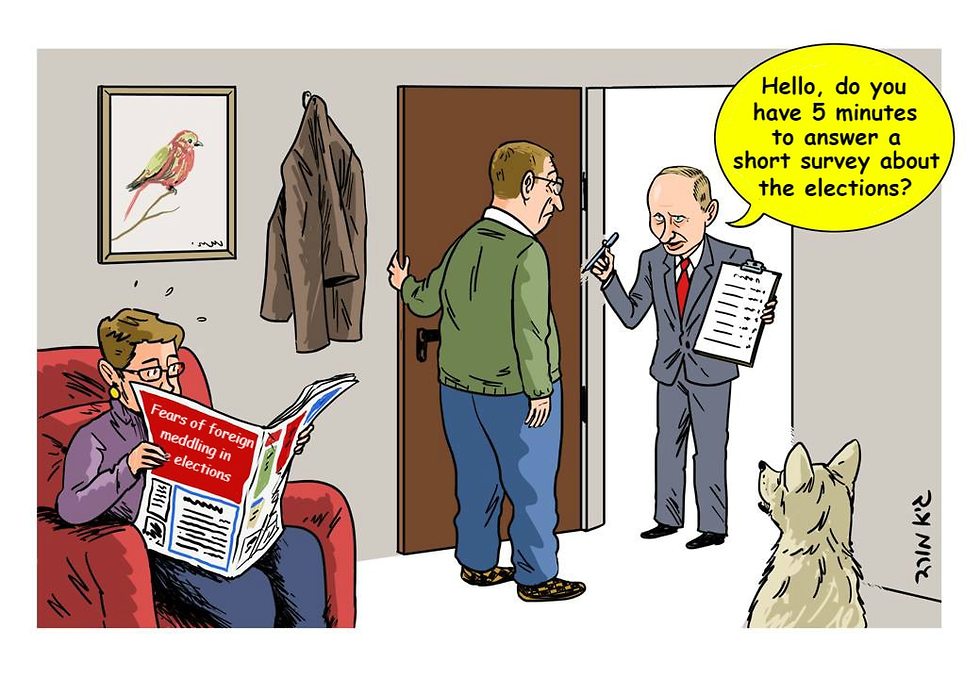
Shin Bet Director Nadav Argaman and Russian President Vladimir Putin
Photo: GPO, Reuters
Earlier this week, Shin Bet Director Nadav Argaman warned against the meddling of a foreign country in the April elections, by spreading false information on social media or by breaching the computers that process the voting information. His statement made headlines, but it seems this should be last on our list of concerns regarding possible intervention in the upcoming elections.
How can Russian elements really intervene in the Israeli elections?
American intelligence agencies describe the Russian hackers methods — through which Moscow sought to influence the 2016 US elections—as having three stages. The first was disguising themselves as Americans and spreading false information on social media. It was a primitive operation, they used poor English and the so-called informative pieces they posted were exaggerated, and actually had zero influence on the American public.
The second move was technological: there was concrete evidence to prove that Russian high-tech experts tried to break into the vote-tallying system. However, these were random, unsophisticated and largely unsuccessful attempts.
Only the third strategy had some effect: Russian hackers were able to steal a collection of the Democratic National Committee’s emails from their servers, including correspondence from Hillary Clinton. They sent this information to anarchistic websites, and did cause some damage—but this surely wasn’t what got Donald Trump into the White House.
Of these three strategies, only the first is likely to be used in the Israeli elections.
The real danger of misleading the public lies in entirely home-made, Israeli campaigns, concocted in the wild imaginations of a multitude of PR advisors. Was it the Russians who in 2015 released a video of Benjamin Netanyahu saying that “Arab voters are going to the polls in droves”? Did Russian bots flood the voting stations with notes saying “A Mizrachi votes for a Mizrachi”? And let's not forget late president Shimon Peres’ “Arab mother,” invented a long time before the internet overran campaigns.
Manipulation and demagogy in election processes are as old as elections themselves. Technology and cyber protection offer no real deterrence. We just need to use our brains and think independently, and approach any information being spread by one campaign or another as suspicious until proven otherwise. If it can indeed be proven otherwise.
We all should think before we vote.

















